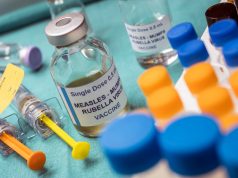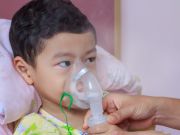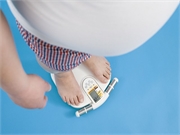Infectious Disease
Home Infectious Disease
Lopinavir/Ritonavir, Umifenovir Ineffective for Mild COVID-19
Rate of positive-to-negative conversion of SARS-CoV-2 did not differ for drug therapy versus standard care
AAD Establishes Registry for Skin Manifestations of COVID-19
Initial study describes cutaneous involvement, which was reported in 20.4 percent of 88 patients
Mild, No Symptoms for Most Children With SARS-CoV-2 Infection
Main radiologic findings are bronchial thickening, ground-glass opacities; also seen when asymptomatic
ACEIs/ARBs Not Linked to Severity or Mortality of COVID-19
Percentage of patients with hypertension taking ACEIs/ARBs similar for survivors, nonsurvivors
White House Announces Payment Plan for Uninsured COVID-19 Patients
Doctors can submit bills for these patients directly to the government and be paid at Medicare rates
CDC: More Chemical Exposures Reported in January to March 2020
Increases of 20.4 and 16.4 percent from January to March 2019 and January to March 2018
Hydroxychloroquine Seems Not to Cut Ventilator Use in COVID-19
Risk for death from any cause higher for HC alone, similar for HC+AZ compared with no HC
Scoring System Helps Guide Surgical Care During COVID-19
Twenty-one factors that were significant contributors to procedure triage and prioritization identified
Obesity Ups Risk for COVID-19 Severity
Disease severity increases with increasing body mass index
ST-Segment Elevation Described in Patients With COVID-19
Presentation variable with high prevalence of nonobstructive disease, poor prognosis



















